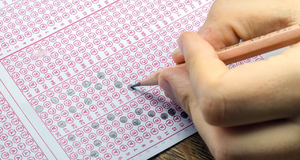Opinion:Attending College When You've Never Been to High School: Integrating Homeschoolers into the College System
By
2010, Vol. 2 No. 02 | pg. 1/1
KEYWORDS:
Since the 1990s, homeschooling in the United States has jumped to impressive numbers, with special assistance in 2000 from the so-called “Harvard for Homeschoolers” program, founded by Michael Farris (Farrah, 2009). Community colleges and universities, at least on the surface, seem anxious to accept this new-found breed: “Home school graduates need only to demonstrate that they have successfully completed a secondary school education in a home school setting and have met state law requirements. No college may refuse admittance based on the argument that these graduates are under compulsory attendance age” (Callaway, 2004, p. 3). "Public universities, private colleges, Ivy League schools - homeschoolers are everywhere" Remmerde, p. 12
Regardless of what the official statements say though, few homeschoolers find this attitude integrated into the process of applying for college. Consistently, homeschoolers are met with everything but outright resistance in the application and financial aid processes, with little to no help from the college board that claims to want students from home educated backgrounds. According to a small sample of homeschoolers, over half declare that their enrollment in college was met with great confusion and difficulty; others did not even have an advisor or councilor to assist them. Of those that did, only two claimed that their councilor “made everything easy” (Appendix 1a). As difficult as it is for public high school graduates to determine what steps are needed and exactly how to wade through the mounds of paperwork required for application, financial aid, and enrollment into classes, it is even more difficult and overwhelming for those who have never even “been” to high school. It is not just the students who find the process inefficient; officials are still befuddled on what to do with the sudden influx of home educated applicants. According to Sorrey and Duggen, community colleges all over the U.S. are still trying to define what requirements should be expected of homeschoolers:"By virtue of their mission, community colleges admit students who may not otherwise be granted admission to a baccalaureate-granting institution. When homeschooled students apply seeking academic experience, community college administrators are often ill-equipped in identifying and responding to these applicants. Since the majority of community colleges do not require ACT or SAT scores from their applicants, many community college administrators are left pondering how to determine a homeschooled student’s eligibility for admission" (Sorrey and Duggen, 2008). If government-promoted schools really do want homeschoolers to attend their universities, they are certainly not demonstrating it. Community colleges and universities alike need to take a good hard look at their enrollment and application processes and determine how they can better equip America’s new type of student, those that fight for originality, diversity, and the individual, all of which are America’s ideals. Breaking Down the ProcessMost homeschoolers would agree that the process, at least in theory, is adequate. But the application of the process to homeschooled students has major flaws that affect their ability to gain entrance into the system of the college of their choice. To sum it up in one sentence: “It’s the paperwork” (Appendix 1b). Though giant leaps have been made in the past years to rework these obstacles, there is still much more to be done. Specifically, college boards need to make a serious reevaluation of application and financial aid processes for their incoming home educated freshmen. Many colleges, for instance, still require “official” transcripts from homeschoolers, signed and dated by their principal. Their principal, of course, is usually the student’s parent, yet the officials argues that a parent’s self-designed diploma and/or signature is not enough to be considered valid. Notice too, that “homeschooled” has yet to become an option on many college applications. There are choices for “transfer students,” “entering high school seniors,” and even in many cases, “foreign exchange students,” but usually the homeschooled student is forced to lump his or her self into the academic catch-all of “Other.” This makes up most of the frustration that the next wave of the home educated generation feels when attempting to start - and finish - the college entrance programs at their college of choice: they become an oddity, left to fend for themselves in a traditional and inefficient system that is not entirely capable of accommodating them. Financial aid, too, is becoming increasingly difficult for students everywhere to obtain, but homeschooled students especially have realized the nightmare that accompanies the search for government aid. Simply determining which scholarships they are eligible for is enough to give a homeschooler pause: What exactly is my GPA when I don’t even know what the “official” grading scale requirements are? Does my English curriculum program compensate for the material on this essay scholarship? How many of my volunteer hours can be considered official “school projects”? Even more confusing: the ever intimidating FAFSA. Frustrations always run high when it comes to money, but the current school system is at a loss on how to deal with the issues of government funding for homeschoolers. According to Sean Callaway’s article on financial aid and the homeschooler, the Department of Education is still trying to analyze how best to handle homeschoolers applying for aid - and there are no easy answers. Self-certification is a difficult and often abused privilege of the homeschooling family, and can often cause uncertainty as to whether a student is actually eligible for financial aid. If he or she is granted aid and has abused the system, it is “discriminatory” for those who have actually completed the necessary requirements to be asked to produce additional evidence that they have been recognized” (Callaway, 2004, p. 3). A repercussion, too, for homeschoolers who do manage to get their application processed is the chance of “getting lost in the shuffle.” Because there are so many exceptions accompanying their applcations, home educated applicants cannot be “filed” with the traditional students; instead they are put into a special category, much like foreign exchange, transfer, and disabled students - except that these groups have an adequate process ready to handle their applications. Equal Opportunity Goes Both WaysWhy, one must ask, are homeschoolers given so little help from the school system? They follow the exact same procedures as traditional students (unlike transfers and foreign exchange students), and often best them in areas like standardized testing, GPA, and scholarship offers. If anything, there should be a special program to keep them going at an accelerated pace, not lump them in with either “traditional” or “special case” students. It seems hypocritical of a system that praises homeschoolers for their individuality, diversity, variety of academic achievements, and broad scope of the world to be so slow and, frankly, negligent in correcting an old system. One may wonder whether homeschooled students must consider their's a hopeless case. Will their achievements, their goals, and their academic dreams have to be halted because, according to the paperwork, they are not “official” enough to attend a university? Dealing with homeschoolers in such ambiguous terms is insulting to those young Americans who are trying their hardest to get into a system that will allow them to become more informed and successful Americans in the first place. In a society that screams for “tolerance” and “equal opportunity,” universities seem to have paid little attention to those who simply ask for a chance to pursue higher education. Homeschoolers do not want to be a “category” - they want equal opportunity. It is time that the school system learn to accommodate homeschooled students. ReferencesCallaway, S. (2004). Unintended Admission Consequences of Federal Aid for Homeschoolers. Journal of College Admission, (185), 22-28. Retrieved from ERIC database. Dansby-Giles, G., & ERIC Clearinghouse on Counseling and Student Services, G. (2002). Professional School Counselors Can Make Positive Connections with Homeschoolers. ERIC Digest. Retrieved from ERIC database. Farah, Alyssa. "The man behind Parental Rights Amendment." World Net Daily: A Free Press for a Free People. N.p., 28 Apr. 2009. Web. 4 Dec. 2009. Retrived from . Kleinman, W. (2008, March 14). Required testing for homeschoolers gets mixed reaction. Daily Oklahoman, The (OK), Retrieved from Newspaper Source database. Remmerde, J. (1997, October 6). How homeschoolers move from family room to college campus. Christian Science Monitor, p. 12. Retrieved from Newspaper Source database. Sorey, K., & Duggan, M. (2008). Homeschoolers Entering Community Colleges: Perceptions of Admission Officers. Journal of College Admission, (200), 22-28. Retrieved from ERIC database. Suggested Reading from Inquiries Journal
Inquiries Journal provides undergraduate and graduate students around the world a platform for the wide dissemination of academic work over a range of core disciplines. Representing the work of students from hundreds of institutions around the globe, Inquiries Journal's large database of academic articles is completely free. Learn more | Blog | Submit Latest in Opinion |


















